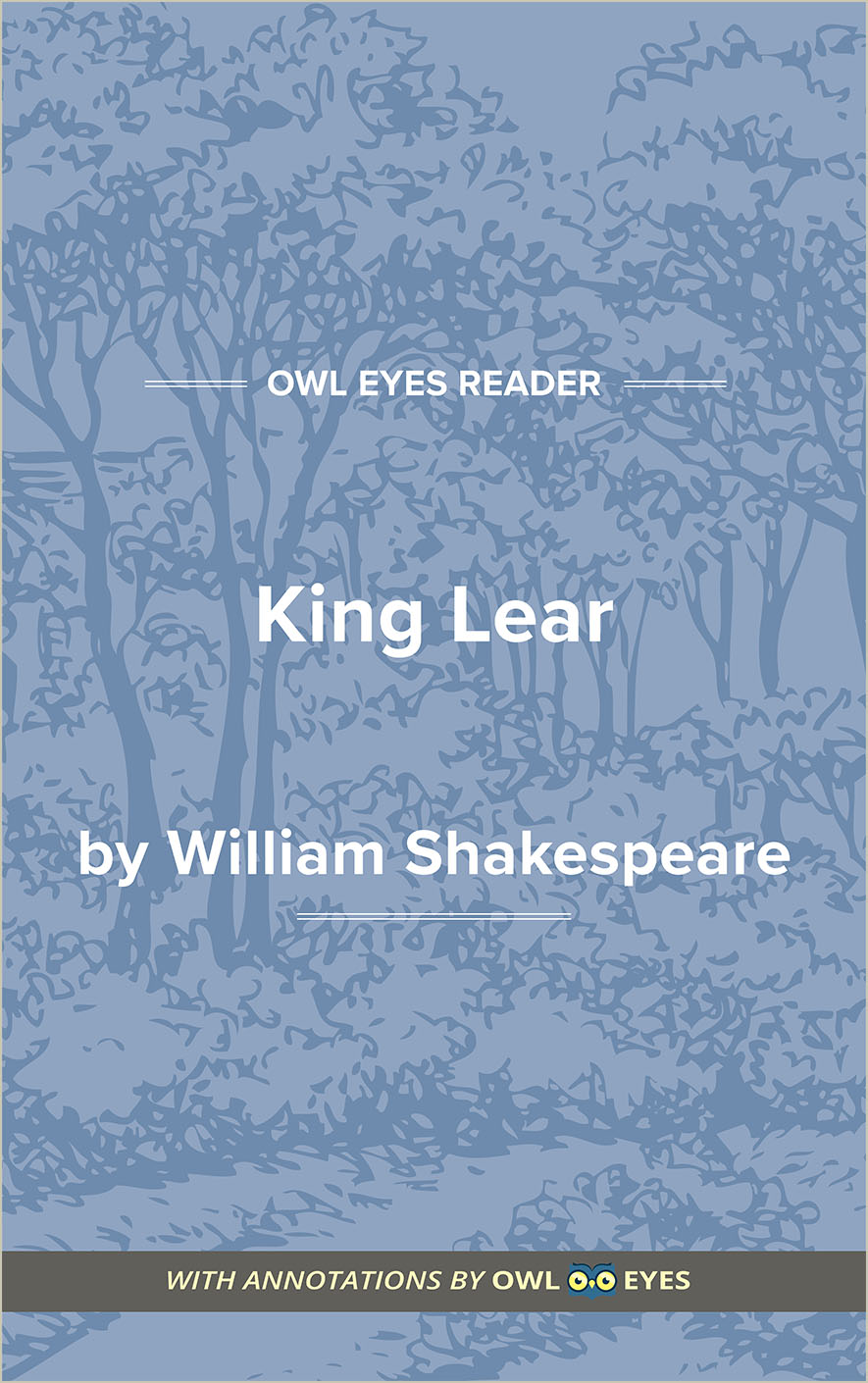Study Guide
Analysis Pages
Summary
King Lear, in foolish fondness for his children, decides to divide his kingdom among his three daughters. Grown senile, he scoffs at the foresight of his advisers and declares that each girl’s statement of her love for him will determine the portion of the kingdom she receives as her dowry. Goneril, his oldest daughter and the duchess of Albany, speaks first. She says that she loved her father more than eyesight, space, liberty, or life itself. Regan, the duchess of Cornwall, announces that the sentiment of her love was expressed by Goneril, but that Goneril stopped short of the statement of Regan’s love. Cordelia, who secretly confides that her love is more ponderous than her tongue, tells her father that because her love is in her heart, not in her mouth, she is willing to sacrifice eloquence for truth. Lear angrily tells her that truth alone should be her dowry and orders that her part of the kingdom be divided between Goneril and Regan. Lear’s disappointment in Cordelia’s statement grows into a rage against the earl of Kent, who tries to plead for Cordelia with the foolish king. Because of Kent’s blunt speech, he is given ten days to leave the country. Loving his sovereign, he risks death by disguising himself and remaining in Britain to care for Lear in his infirmity.
When Burgundy and France come as suitors to ask Cordelia’s hand in marriage, Burgundy, learning of her dowerless fate, rejects her. France, honoring Cordelia for her virtues, takes her as his wife, but Lear dismisses Cordelia and France without his benediction. Goneril and Regan, wary of their father’s vacillation in his weakened mental state, sets about to establish their kingdoms against change.
Lear is not long in learning what Goneril’s and Regan’s claims of love for him really mean. Their caustic comments about the old man’s mental and physical feebleness furnish Lear’s fool with many points for philosophical recriminations against the king. Realizing that his charity to his daughters makes him homeless, Lear cries in anguish against his fate. His prayers go unanswered, and his daughters’ abuse hastens his derangement.
The earl of Gloucester, like Lear, is fond of his two children. Edmund, a bastard, afraid that his illegitimacy will deprive him of his share of Gloucester’s estate, forges a letter over Edgar’s signature, stating that the sons should not have to wait for their fortunes until they are too old to enjoy them. Gloucester, refusing to believe that Edgar desires his father’s death, is told by Edmund to wait in hiding and hears Edgar make assertions that could easily be misinterpreted against him. Edmund, furthering his scheme, tells Edgar that villainy is afoot and that Edgar should not go unarmed at any time.
To complete his evil design, he later advises Edgar to flee for his own safety. After cutting his arm, he then tells his father that he was wounded while he and Edgar fought over Gloucester’s honor. Gloucester, swearing that Edgar will not escape justice, has his son’s description circulated so that he might be apprehended.
Edmund, meanwhile, allies himself with the dukes of Cornwall and Albany to defend Britain against the French army mobilized by Cordelia and her husband to avenge Lear’s cruel treatment. Edmund wins Regan and Goneril completely by his personal attentions to them and sets the sisters against each other by arousing their jealousy.
Lear, wandering as an outcast on the stormy heath, is aided by Kent, disguised as a peasant. Seeking protection from the storm, they find a hut where Edgar, pretending to be a madman, took refuge. Gloucester, searching for the king, finds them there and urges them to hurry to Dover, where Cordelia and her husband will protect Lear from the wrath of his unnatural daughters.
Because he attempts to give succor and condolence to the outcast Lear, Gloucester is blinded when Cornwall, acting on information furnished by Edmund, gouges out his eyes. While he is at his...
(The entire page is 1,208 words.)
Owl Eyes subscribers get unlimited access to our expert annotations, analyses, and study guides on your favorite texts. Master the classics for less than $5/month!

